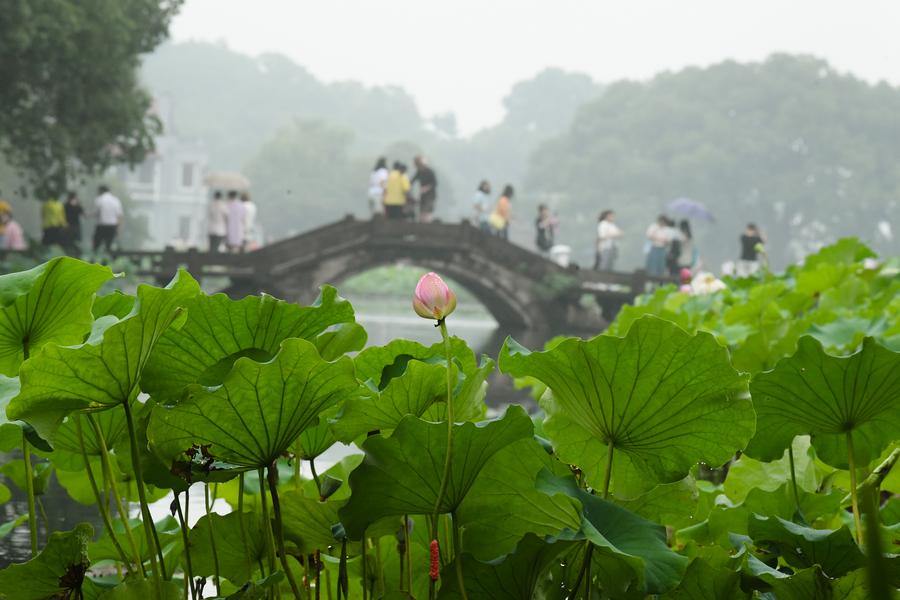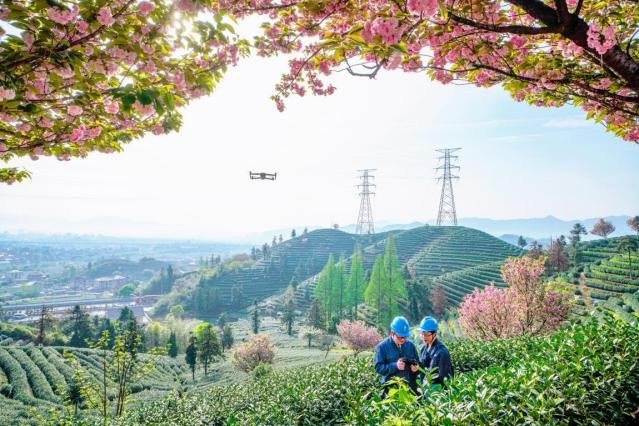Editor’s Note: Hangzhou as the capital city of Zhejiang provinces features vibrant e-commerce economy, rich Song Dynasty culture, convenient online administrative service. Recently, Hangzhou is listed as top 10 Chinese cities for talent inflows and announced 15 sites for most authentic experience of Song Dynasty culture. Meanwhile, specific standards are issued to regulate livestreaming industry and electronic certificates are promoted to serve public needs by Hangzhou government. More details can be found in today’s coverage of Zhejiang Highlight.
1.Hangzhou among top 10 Chinese cities for talent inflow
Shanghai, Shenzhen, Chengdu, Beijing and Guangzhou are the top Chinese cities by their inflow of talent over the past 10 years, Yicai reported on Nov 25. The Chinese financial media outlet analyzed data from 35 cities, including municipalities, provincial cities with five million populations, those with GDP of over a trillion yuan and Dongguan, a manufacturing-focused city in Guangdong province.
Compared to 2010, Shanghai has added 3.37 million talents as of 2020, obtaining first place. The city has many multinational companies and financial institutions, as well as outstanding capabilities in research and innovation. The report defined talent as people who have completed their university study. Hangzhou, capital of East China's Zhejiang province, ranked 9th on the list.
2.15 sites announced for most authentic experience of Song Dynasty culture in Hangzhou
Fifteen scenic spots and shops in Hangzhou, Zhejiang province were recently honored by the local government as having the most authentic and enriching Song Dynasty atmosphere, local media outlets reported.
Three sites were recognized as experience bases, while 12 were recognized as experience stations.
The 15 sites stood out from among 127 nominated locations as they have undergone strict assessment and field investigations by experts, scholars, and media representatives.
The sites aim to bring visitors a variety of experiences related to the time-honored culture of the Southern Song Dynasty (1127-1279). For example, Qinghefang can invite visitors for a leisurely stroll on the ancient imperial street, Jingshan Temple in Yuhang district allows visitors to relax their bodies and minds, and Huantan village brings visitors back to the time of General Yue Fei passing the site with his soldiers and drinking pond water while resting. As the capital of the Southern Song Dynasty, Hangzhou boasts abundant cultural attractions from the period.
3.Hangzhou issues standards to regulate livestreaming industry
Hangzhou, capital of East China's Zhejiang province, recently released a set of standards to regulate its live streaming industry. The new standards will take effect on Dec 30. The move will set benchmarks for the healthy development of the livestreaming sector, officials said.
The standards are related to the management of business entities, live streamers and multichannel network organizations, and after-sales services. According to officials, the move is aimed at dealing with inappropriate actions in the livestreaming industry such as false advertising.
The nation's first digital management platform for livestreaming e-commerce was also recently launched in Shangcheng district, Hangzhou. The platform uses blockchain, big data and artificial intelligence technologies to analyze the video data of livestreaming e-commerce companies and will issue warnings to relevant authorities if any illegal promotional activity is detected.
4. Zhejiang promotes electronic certificates to serve public needs
The Zheliban app, an online administrative service platform widely used in Zhejiang province, recently allowed users to apply for the mineral resource exploration permit, which is issued by the Zhejiang Provincial Department of Natural Resources.
The app has so far amassed 297 kinds of electronic certificates or licenses that are related to almost all administrative service items that are frequently used by individuals and enterprises in the province. Some of the electronic documents can even be checked by scanning QR codes.
More than 53 million electronic certificates have been applied for and awarded through the app, including 2.08 million business licenses and 19.87 million medical insurance cards. Residents in the Yangtze River Delta region, which encompasses Shanghai as well as the provinces of Jiangsu, Zhejiang, and Anhui, can use the app to book tickets to some 110 libraries, 120 museums, and 160 tourist attractions in Zhejiang.
5.Anji exhibition highlights Terracotta Army
An exhibition featuring cultural relics, including some terracotta warriors and horses transported from Xi'an, Shannxi province, recently opened in Anji county, Huzhou, East China's Zhejiang province. The life-sized terracotta army was discovered at the Mausoleum of Emperor Qinshihuang of the Qin Dynasty (221 BC-207 BC) in Xi'an in March 1974. It is reputed to be one of the greatest archaeological finds in the twentieth century and the eighth wonder of the world.
Slated to run until March 10, 2022, the exhibition is being held in the newly established museum built on the Anji Ancient City Site, the site of the royal mausoleum in the early period of the Yue Kingdom (2032 BC to 222BC), which was unearthed in 2001 in the northern part of the county. Occupying an area of more than 3,000 square meters, the museum, the first ever built on an evocation site from the city, is designed to display archaeological achievements and basic archaeological knowledge in Anji since the Shang (c. 16th-11th century BC) and Zhou (c.11th century-256 BC) dynasties.
Nearly a thousand sets of cultural relics unearthed in Anji and its surroundings are also on display at the museum along with the terracotta figurines from Xi'an. Visitors must make a reservation in advance and are required to wear face masks, present their health codes, have their temperatures taken before entering the museum.
Editor: Huang Yan




